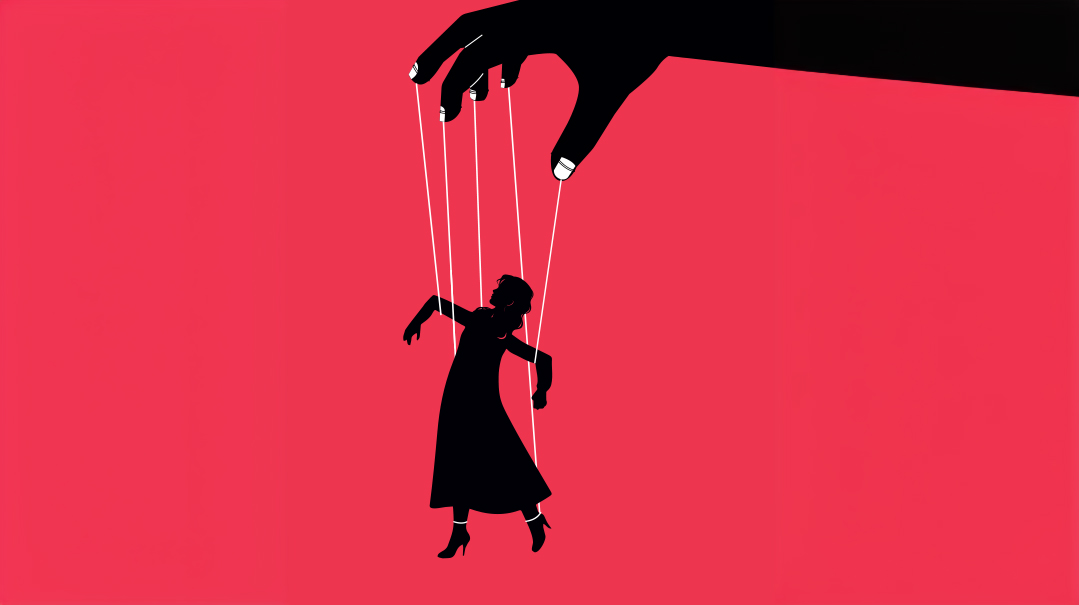Scaling the Wall You Built


Common ways daters self-sabotage—and strategies to get past the hurdles

Sherry Zimmerman, J.D., M.Sc. and Rosie Einhorn, L.C.S.W.
When faced with another failed shidduch, some daters simply dismiss it as “not bashert” and move on. And that may be the case. Sometimes, though, they’re the one preventing shidduchim from moving forward. Two seasoned dating mentors, who are also psychotherapists, share the self-sabotaging behaviors they see most often — and strategies for getting past them
"I don’t know what to do,” Shevy* told us with a sigh. “I’m ready to go on a fourth date with Eli, but out of the blue I got a ‘yes’ from Shmuel. I’ve been dying to go out with him for two years. He’s everything I want, and if I don’t meet him now, he’ll date the next girl. What if it doesn’t work out with Eli? I can’t lose this chance.”
During the decades we’ve been mentoring daters, we’ve seen this scenario unfold countless times. “Shevy, you’re telling us that even though things have been going well with Eli, you’re ready to drop him because your fantasy life with Shmuel might come true. What’s wrong with this picture?”
“You tell me,” Shevy responded defensively. “I don’t think there’s anything wrong. Eli’s a nice guy, and there’s no reason for me to stop seeing him. But there’s also nothing to keep me there. And Shmuel’s exactly what I’m looking for. I’ve been waiting for a ‘yes’ for so long.”
We empathized with Shevy. “We can see why you want to date someone you’ve been waiting for. That said, there’s no guarantee that you and Shmuel will get to a second date. On the other hand, you see good things about Eli, and your connection is just starting to develop. If you stop seeing him now, you’ll never find out what could’ve been.”
Shevy looked pensive. “It’s funny you should say that. In the past, I’ve done exactly what I want to do now — end something at this point because there’s a guy who sounds better. And, I have to admit, when I did that, it never materialized into anything. Still, I can’t stop hoping that with Shmuel it’ll be different.”
When a budding shidduch is progressing slowly, daters can get easily distracted if a new suggestion comes up that sounds more exciting — be it with yichus, family status, looks, charm, or a bio that “checks all the boxes.” They rationalize that they should jump ship on the current shidduch to date the new person. But actually, they’re engaging in one of the many forms of shidduch self-sabotage.
There are many reasons why men and women who seem to be dating for marriage repeatedly sabotage themselves to keep relationships from forming. Many of these daters usually don’t understand, or at least won’t admit to themselves, that something is blocking them from moving forward. They believe they want to be married, and they date frequently and readily, but their own actions keep them from achieving their goal.
Stumbling Blocks to Success
We’ve seen daters engage in patterns of behavior that would prevent even a great match from making it to the finish line. Sometimes, singles get in the way of their own success even before the first date. They do this by agreeing to shidduch suggestions that are clearly not suitable.
For example, David feels he’s being open-minded when he dates women with hashkafos that are far more liberal than he’d ever imagined for himself. Similarly, Adina keeps agreeing to meet men who sound like they don’t have their act together. Both David and Adina wonder why they’re always being set up with unsuitable people, not realizing that they’re accepting dating partners who make it easy for them to say, “It just wasn’t for me.”
Another classic way that daters self-sabotage in the early stages of shidduchim is by avoiding or delaying follow-up. Chaya starts dating someone for a couple of weeks and then becomes avoidant, making work and family excuses for why she can’t see him so often. Eventually, the man stops trying to set up dates.
Gershon does something similar: After a good, or even great first date, he can take as long as a week to get back to the woman he’s met. By then, she’s lost interest in him because she feels he’s inconsiderate.
What’s behind these behaviors?
There could be any number of explanations. For instance, Gershon may be afraid marriage will trap him or turn him into someone he doesn’t want to be. Perhaps Chaya, who’s the youngest in her family, wants to be married, but feels guilty about “skipping” her much older sister, who’s still single. Adina could be terrified about what will happen when she starts to build a connection with someone since she knows she’ll have to share a secret that causes her great shame. David, who was traumatized by the financial hardships his family went through when he was young, may be afraid he won’t be able to support his family.
Underlying reasons like these are also what’s behind the dater who emotionally bolts before things get too serious. For instance, Leah’s parents and friends can’t understand why she’s never gone past a fourth date. She’s optimistic at first, but by the third or fourth date, she decides to end the shidduch. There’s a different reason each time — he’s not what she’s looking for, she doesn’t like the way he drives or dresses or smiles, he isn’t deep enough, or they aren’t connecting as much as they should by now.
Could any of Leah’s relationships have developed? We’ll never know, because Leah doesn’t give them a chance. She’s convinced each man is not the right one, but the pattern of Leah’s dating suggests something else is going on. Leah hightails it as soon as it’s time for the couple to reveal deeper information about themselves.
Why might Leah be so reluctant to open up and be vulnerable? She may doubt herself — feeling that she’s not good enough or that she’ll be rejected once her date knows the “real Leah.” Perhaps Leah may unrealistically expect to feel a strong connection by the third or fourth date and believes continuing beyond that is pointless. Maybe she’s afraid of marriage — because she doesn’t feel emotionally ready, or because her childhood home lacked shalom bayis, and she doesn’t know how to achieve it in her own marriage. Whatever the cause, if Leah doesn’t address what’s at the root of her behavior, the same pattern will continue.
One of the most common ways that daters become their own worst enemy is when they fixate on one or more issues, which hinders forward movement. They’re like a driver whose car is unable to budge in the snow no matter how hard they spin the wheels. In these situations, there’s typically enough momentum to keep the shidduch going — for example, the couple feels connected and they share goals and values — but there’s a catch: One of them doesn’t come in the “package” the other envisioned. It could be a large age gap, differences in education, culture, or economic backgrounds, or a medical condition, and they’re having a hard time getting past it.
Yehoshua and Miriam got stuck for a different reason. They felt a good connection from the start and could have fun together as well as talk seriously. They were at the same stage of life — Miriam wanted someone who had been in yeshivah and was now establishing a career, and after years of yeshivah, Yehoshua was finishing an engineering degree. There were also differences: Yehoshua longed for a Shabbos table filled with guests, while Miriam wanted mostly quiet Shabbosim after a hectic week. No sooner had they compromised their visions of Shabbos that they disagreed about the size and type of community to live in, how active they’d be in their shul, and how much to be involved with their families. Each time they resolved one stumbling block, they discovered yet another difference in how each envisioned their lives together.
Self-Help for Self-Sabotage
What can daters do if they suspect they might be getting in the way of their own success?
The first step is to engage in some self-reflection.
Start by looking at your dating history. Write down how often you’ve had only one or two dates, the times that dating stopped after three or four meetings, and the relationships that lasted longer. What were your expectations and were they met? What did you do together? What topics were discussed, what did each of you say? What were your thoughts and feelings about your dating partner and about what went on? Who decided to end things and was there a reason? Look at your list, and see if there are any common threads or patterns.
Then, examine the expectations, thoughts, and feelings you experienced at the time. That may help you connect the dots between the pattern and the reason behind it. For example, Bracha realized she usually decided against a third date because she didn’t feel much of a connection, even if the guy was in the ballpark and the dates had been okay. She expected to quickly “know” if someone was right for her.
Bracha decided to break her old pattern by following up on a suggestion she’d rejected in the past — she’d continue dating someone “as long as there’s no reason to say ‘no.’” Bracha saw herself starting to connect with her dating partners and decided to continue her new approach.
Some people clearly see a pattern of self-sabotage, but they don’t have insight into the reason for it. Or they know the reason but don’t know how to address it. When that’s the case, they’ll likely keep repeating the pattern or exchange it for another form of self-sabotage. This is when it’s crucial to seek advice from a third party — someone wise who knows you well, such as a rebbe, former teacher, trusted friend, or family member.
For example, when Yehoshua and Miriam reached yet another stumbling block and couldn’t move forward, Yehoshua confided in his rebbe that even though he was glad they’d worked through so many of their previous issues, he honestly didn’t even know how he felt about Miriam anymore.
“It seems to me that you and Miriam think you’re making progress with compromises, but you aren’t,” his rebbe observed. “That’s because you keep dealing with the same problem, but each time it has a different name. Even though you have the same values and the same hashkafah, your goals for married life are very different. Everyone compromises in marriage, but when you give up a great deal of what you really want, you’re not being true to yourself.
“Is it possible that you’re twisting yourself into a pretzel, and deep inside you’re miserable, so you can’t move forward?” His rebbe nailed the issue, which ultimately helped both Yehoshua and Miriam say “no” with clarity and confidence.
A dating mentor is also an invaluable first resource. Adina, who went MIA as soon as relationships got serious, chose to talk through her issues with a dating mentor. She could easily pinpoint the reason behind her avoidant behavior: She was anxious about revealing a secret she was ashamed of.
Adina’s mentor validated her concerns, helped her decide the best point in the dating process to disclose her secret, and suggested that she reveal it by sandwiching the revelation in between positive statements about herself.
Adina practiced different ways to say, “I have a good life now, and I’m happy with who I am. But I made a mistake when I was younger that I deeply regret. I _____. I’ve done a lot of teshuvah and I know that I’ve become a better person through this process.”
As dating mentors, we often get involved during the “stuck” stage, when couples keep spinning their wheels over an issue. For example, Rina and Tzvi consulted with us because although they both expressed a desire to live in Israel, Rina was determined to move soon after finishing college, while Tzvi expected to build his career before making the move “someday.”
They wanted to get engaged but knew that they had three choices: one could accept the other’s dream and make it their own; they’d break up and pursue their separate goals; or they’d find a way to compromise. After discussing all the possibilities they could think of, Rina agreed that it would be better for Tzvi to develop his career in the US, and he said he was willing to consider a shorter time frame for aliyah. They decided to get married and revisit the idea of moving to Israel in a few years.
Sometimes the issue is a quality that isn’t going to change, such as a height or age difference, medical condition, or dissimilar backgrounds. When that’s the case, we guide daters to make a list of each concern about the situation, such as “I’m uncomfortable about our ten-year age difference,” or “I always dreamed of a taller husband.”
Then we ask: Do you think it’s possible to become more comfortable with your concerns in time? If so, then temporarily set the issue aside, continue to date the person, and ask yourself if the “issue” is still an issue after a few weeks. If you’re in the same place as before, this may not be something you can get your head around, no matter how long you try.
You may need more information before you can address certain worries, such as “What can I expect from his medical condition in the future?” Talk to whoever can give you the information you need, including medical professionals and people who’ve faced similar challenges. Give yourself a week or two to process what you’ve learned, and then decide whether you think you can handle the situation.
What if you can’t move forward because you worry, “How will my friends react when they see us together”? Your concerns are probably on target — at first, they may notice that he’s a little awkward or that he looks ten years older than you, but that will fade as they see you become a couple. Ask yourself if you can get past your worries about superficial judgments and focus on continuing to build a relationship.
The Mentor’s Role
Good mentors need a solid understanding of when they’re able to guide the dater using their own skill set and when to refer a client to a therapist. For example, some clients become nervous right before or after engagement. A mentor can help a client figure out if they have generalized anxiety about this big step, if they need more time before engagement so they can feel confident about their decision, or if the client is having genuine concerns about having made a mistake.
A mentor should be able to reassure a nervous client that some anxiety is normal, help them evaluate their relationship and decide what to do, and teach them tools to calm themselves. When the mentor sees that these efforts aren’t helpful or realizes that the client’s anxiety seems more deep-seated, they should refer the client for therapy.
Take David. He avoided suitable matches because he was afraid he wouldn’t be able to support a family. He started out with a dating mentor, but because he needed more guidance than his mentor was qualified to give, he switched to a therapist, who was able to help him properly address his fears.
Therapists can be helpful during the dating process too: Sara and Jonah were both frustrated by their circular, repetitive arguments and met with a therapist to learn better communication and resolution skills.
Let’s go back to Shevy, who wanted to end her relationship with Eli because she finally got a “yes” from Shmuel. “What would happen,” we asked Shevy, “if you’d never heard about Shmuel’s ‘yes’? You probably would have allowed your fledgling relationship with Eli to develop. Maybe your connection would have grown, and you’d come to realize you were right for each other. Or not. But your dating would have progressed naturally.
“Now what would happen if you jumped ship now and went out with Shmuel? In our combined experience, we’ve never seen anyone who made this choice get beyond the first or second date with a ‘Shmuel.’ However, we know many daters who choose to say ‘no’ to someone new and ultimately married the person they were in the middle of dating.”
Shevy deliberated and decided to keep dating Eli. She followed several of our suggestions to help her dating move forward. One tip was to stay in the moment during dates: Shevy was mindful of what she and Eli spoke about and did together, and when her thoughts wandered to how she felt about Eli or what a future with him might be like, she brought herself back to the moment.
Before each date, Shevy thought of a couple of topics she would discuss with Eli. They had fun, but they also shared ideas about what they wanted out of life, how they envisioned their future home, and their opinions, tastes, and preferences.
Instead of imagining what Shmuel might be like, Shevy made a conscious effort to keep dating Eli until it became clear that either he was the right person for her — or he wasn’t.
Shevy’s patience paid off. She began to look forward to seeing Eli and enjoyed his sense of humor and calm personality.
“I wonder why I didn’t see this before,” she said to us, and then gave her own answer. “It’s because I didn’t know Eli yet. I thought you were supposed to know right away that you’ve met The One. I didn’t realize it can take time.” Soon afterward, Shevy called us to happily announce her engagement.
For information about mentor training courses, the authors can be contacted through Mishpacha.
Dating Mentor or Therapist?
You’re ready to talk to someone about the dating issues that keep surfacing, but how do you know if the right address is a dating mentor or a therapist? Here’s a quick breakdown of their unique roles:
Dating Mentors
Good dating mentors have experience in teaching, counseling, life coaching, or matchmaking, and have acquired basic knowledge about the dating process and healthy relationships. They have good instincts and people skills, are non-judgmental, and are good listeners and communicators.
They may not have formal training, but have read relevant books and articles, and work on improving their range of knowledge. They also know their limitations and will ask a therapist or a mentor colleague for help with an issue they’re not sure about. Many mentors begin their careers by taking a training course and arranging to be supervised until they have a fair amount of experience.
Here are some of the ways they support daters:
- Brainstorm ways to network effectively, develop and use dating profiles, check out potential dating partners, and utilize references.
- Help clarify values, goals, priorities, and what you’re really looking for in a spouse.
- Teach basic dating and communication skills and ways to optimize presentation.
- Discuss how to build a relationship, what are reasonable expectations at each stage of the dating process, and how to figure out if the person you’re dating is right for you.
- Clarify when and how to disclose sensitive personal information.
- Identify unproductive dating patterns, help you understand why they’re happening, and strategize how to change them.
- Discuss concerns about a dating partner or an ongoing relationship and ways to address them.
- Identify red flags and help daters deal with them.
- Help burned-out daters get out of their rut.
- Help daters identify and resolve blockages, and recommend therapy when appropriate.
Therapists
Therapists have the specialized training to identify and address many issues that are beyond the capability and experience of even the most talented mentor.
Some of the circumstances where a therapist should be involved include:
- Client lacks the focus, maturity, life skills, responsibility, goals, or stability of most adults at a similar age or life stage.
- Client hasn’t individuated or separated from her parents. She hasn’t developed her own ideas, desires, and goals, or she relies on her parents to arrange her life and make decisions for her.
- Client can’t move beyond a blockage she’s unsuccessfully tried to resolve with a mentor’s guidance.
- Client seems to have unresolved anger, hurt, bitterness, or trauma.
- Client has low self-esteem, fearing rejection when someone “discovers who I really am” or feeing she doesn’t deserve a good spouse.
- Client has had difficulty leaving a relationship with a controlling, abusive, or potentially abusive person.
- Client fears marriage due to parents’ divorce or lack of shalom bayis, other family issues, or their own divorce.
- Client has trouble moving forward in life after a loss (parent, sibling, close friend).
- There are indications that the client is depressed, has poor boundaries, struggles with another mental health issue, has an addiction or substance abuse problem, or may have a personality disorder.
- Client won’t open up to dating partners because she’s afraid to reveal a secret or that she has experienced abuse or trauma.
(Originally featured in Family First, Issue 793)
Oops! We could not locate your form.












